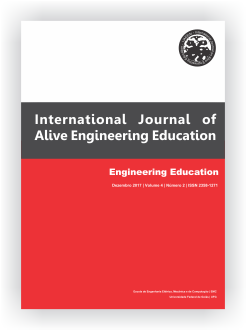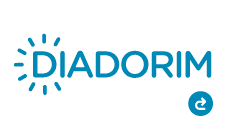Cooperative Learning Environment in Teaching Mobile Application Development
DOI:
https://doi.org/10.5216/ijaeedu.v4i2.48151Resumen
The evolution in the formation of techniques in technological vocational education constitutes a series of pedagogical strategies that allow the learning, exercise, incentive and practice of students. The projects of interdisciplinary in the university aims to assist in learning the individual with the incentive of activities directed for collaborating with students in undergraduate. These projects are important for undergraduate courses in electrical engineering and computing engineering at the Universidade Federal do Ceará (UFC), Sobral campus. With the main objectives of the project is to encourage the student to learn to academic growth. This article presents a case study developed by the project called the cooperative learning cell for the development of android applications, applied in groups of engineering students in the first and second semesters, using recent teaching methods aimed at learning, occurring in the period from September to December 2016. The main objective of the project was to promote the learning and sharing of knowledge about the programming content for mobile devices, aimed at the android operating system. In addition, it seeks to stimulate the student with more interactive content, applying examples and activities related to mobile programming that were related with the content of the engineering course or the labor market. After the group of students was created, nine meetings took place in each of them, the cooperative learning methodology was applied to the group, where the knowledge was generated through the interaction between two or more people, resulting in an active participation of the educational process. The classes were designed with a focus on content exposure, challenges and small projects to solve group tasks. In addition, professionals working in engineering companies in the northern region of Ceará were invited to give lectures to show the current situation of the labor market, focused on mobile applications. Evaluating the result over the course of the project.
Keywords: Educational incentive, Cooperation, Engineering Teaching, Android.
Descargas
Publicado
Número
Sección
Licencia
Copyright
The author is responsible for the following statements by submitting an article electronically in the International Journal of Alive Engineering Education (IJAEEdu):
a) States that the document in question was reviewed by an expert in English language and it is an original work and it holds the prerogative to grant the rights contained in this license. It also states that the document does not infringe, as far as it is possible to know the rights of any other person or entity.
b) If the document in question contains material which does not hold the copyright, the author states have obtained the copyright holder’s permission to grant the Universidade Federal de Goiás (UFG) the rights required by this license, and that such material whose rights are third is clearly identified and acknowledged within the text or content of the document.
c) States that the study was conducted in accordance with the ethical standards of all applicable institutional, local, national and international guidelines.
d) It also states that any person appointed as author or co-author of the document is aware of it and agrees to be so appointed.
Authorization Form
As responsible for the submission of the document, I authorize the School of Electrical, Mechanical and Computer Engineering of the Federal University of Goiás to provide the paper free of charge, through the Electronic System for Publishing Magazines UFG (SEER / UFG) or in printed form, without compensation of copyright, in accordance with Law No. 9610/98. Is allowed, reading, printing and / or download, as a promotion of the Brazilian scientific production. Any use of the work not authorized under this license or the copyright law is prohibited.



